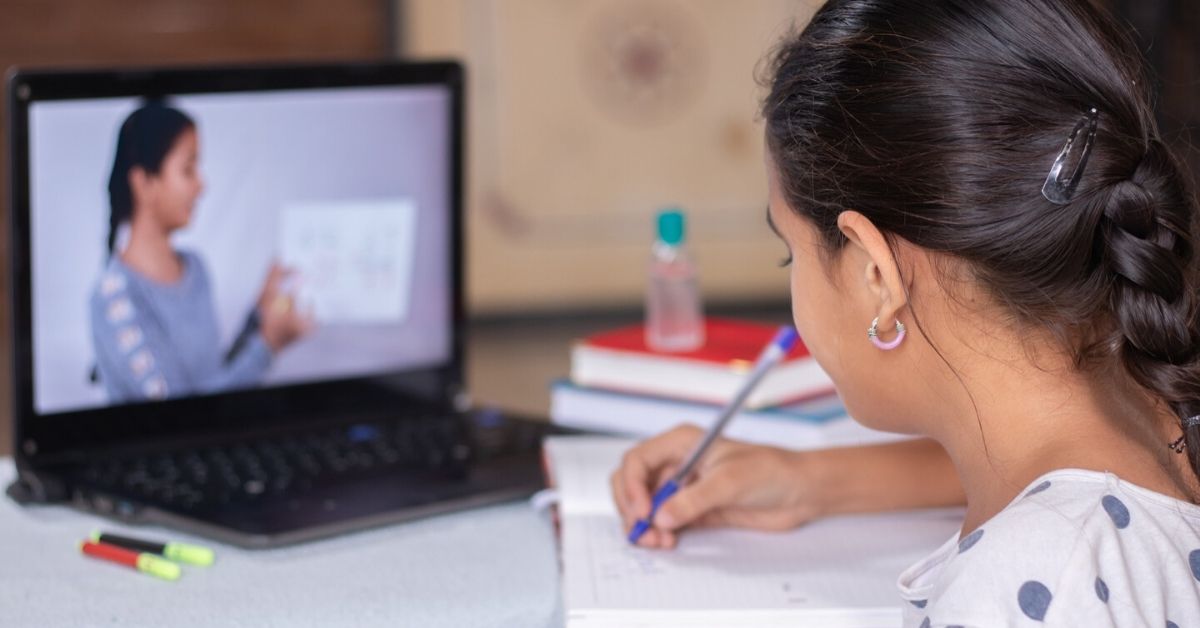With the outside world out of bounds, a lot of people have started to escape into the virtual world for entertainment and relaxation. I am no exception. Working during the daytime and binge-watching my favourite serials on online streaming channels at night has become a daily norm. Naturally, I spent almost ten days nursing a headache so bad that it felt like my eyes would pop out. This coupled with extreme eye pain, and itchiness made it nearly impossible even to do basic tasks around the house. I found myself rubbing and massaging my eyes vigorously, and also trying to apply a warm compress to relieve the pain – sadly, nothing worked.
It was at this juncture that I decided that medical intervention was needed. A visit to the ophthalmologist left me with a new term – Asthenopia, which is a Greek term for weak-eyes. Fortunately for me, all it required were new prescription glasses, some easy-to-follow eye-exercises, and a couple of days away from the screen.
I followed them all, and it did help. Yet, not one to take things at face value, I spoke with Dr Aman Malik, an eye surgeon, based in New Delhi, to better understand this condition people so commonly complain about but know little of.
What is Asthenopia?

“Asthenopia or eye strain can be caused due to various reasons – two of the common causes we find are muscle weakness and low vision.”
Eye strain also happens when we blink less. Normally, we blink 15-20 times in a minute, which reduces to 2 per minute when we are doing something which needs concentration like working, or reading. “The muscles, therefore, get tired and, the tear film dries up – this leads to the vision getting blurry. The natural reaction is to rub the eyes, and that provides temporary relief, so one goes about their life again,” Dr Malik. This made me realise I would do the same, but the relief was always short-lived.
So What Are the Other Symptoms of Asthenopia?
You may feel one or all of the following in your eyes:
1. Dryness
2. Pain
3. Burning sensation
4. Blurry vision
5. Eyes feeling tired quickly
“If one were to ignore these symptoms, over a period of time, the muscles will get weak and lead to pain. It could also lead to a dull nagging headache, which is often treated with pain killers that only provide temporary relief,” explains Dr Malik.
He also adds here that you must continue wearing the prescription glasses, especially when working at a desktop/laptop or consuming a lot of content online. “Even wearing anti-glare spectacles while working or looking at a screen will help reduce the strain,” says Dr Malik.
How to Reduce Digital Eye Strain then?
1. Ever heard of the 20-20-20 rule?
For every 20 minutes, you spend looking at a screen, turn and look at an object at least 20 feet away for at least 20 seconds. While doing this, Dr Malik also recommends that you add some voluntary blinking which can reduce eye fatigue.
2. Put on Anti-glare Glasses
“If you feel no respite even after following the 20-20-20 rule, then you could opt for anti-glare glasses,” says Dr Malik. You don’t need a prescription for these spectacles, a visit to the local optical shop will suffice.
3. Go for lubricating eye-drops
With a reduction in the number of times you blink every minute, the eyes tend to get dry, leading to irritation. While Dr Malik recommends that you remember to blink every few seconds, lubricating eye drops can also be used in case of extreme dryness in the eyes. “Get your eyes checked and ensure that you keep a lubricating eye drop with you handy,” he says.
4. Never underestimate the power of periodic eye-check ups
“After the age of 40, it is recommended that you get a test done atleast twice a year (once every six months). For those who have no symptoms, then once every year,” says Dr Malik. Those who wear prescription eyeglasses must also get themselves checked once in six months.
5. Ergonomics of the workstation
Now that a lot of us are working from home make sure you make your home workstation conducive to productive work hours but less eye strain. Dr Malik says, “The recommended distance between the monitor and the eye is between 18 to 28 inches. Viewing the computer screen closer than 18 inches can lead to a strain to the eyes.”
6. What about Kids?
Typically, children and teens should get their eyes checked every two-three years. As for toddlers, Dr Malik says, “Babies who are born pre-term must undergo a complete eye check-up immediately after birth to ensure that their eyes are fully developed. For others, an eye examination is a must before 3-years-of-age even if they do not display any symptoms.”
So, if you are experiencing any of the above symptoms, don’t rule out a visit to an ophthalmologist. I highly recommend it.
(Edited by Saiqua Sultan)
Like this story? Or have something to share?
Write to us: contact@thebetterindia.com
Connect with us on Facebook and Twitter.
If you found our stories insightful, informative, or even just enjoyable, we invite you to consider making a voluntary payment to support the work we do at The Better India. Your contribution helps us continue producing quality content that educates, inspires, and drives positive change.
Choose one of the payment options below for your contribution-
By paying for the stories you value, you directly contribute to sustaining our efforts focused on making a difference in the world. Together, let's ensure that impactful stories continue to be told and shared, enriching lives and communities alike.
Thank you for your support. Here are some frequently asked questions you might find helpful to know why you are contributing?

